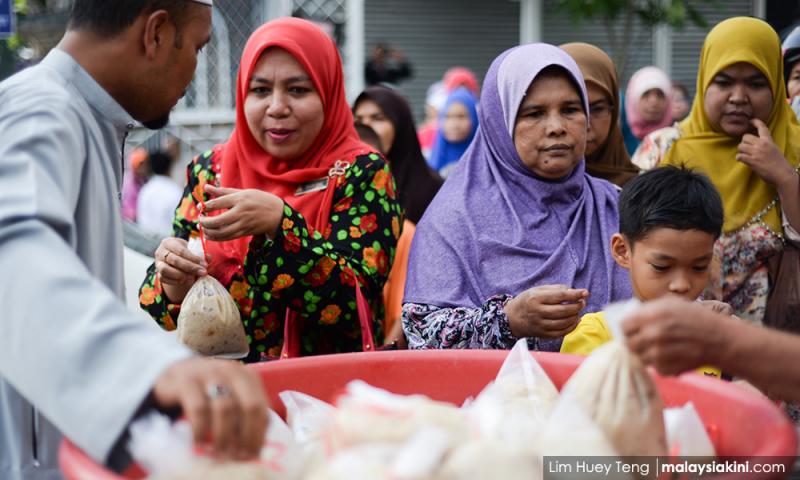
Fa Abdul
Published: Mar 17, 2024 11:34 AM
COMMENT | Pak Samad loves bubur lambuk. Every year during Ramadan, he will always break his fast with dates, then a glass of water, followed by a bowl of reheated bubur lambuk.
Bubur lambuk is a fragrant and nourishing rice porridge infused with spices, meats, and herbs. The distribution of bubur lambuk at mosques is a cherished tradition every time Muslims in Malaysia embark on a journey of spiritual reflection, fasting, and community solidarity during the holy month.
When Pak Samad was a young boy, he used to follow his father to perform the Asar prayers and wait in a queue to collect bubur lambuk in a small food carrier. Sometimes his father would collect extra to be passed to their non-Muslim neighbour who also enjoyed the special dish.
Pak Samad’s father believed that the distribution itself is a tradition rooted in the teachings of Islam, which emphasises the importance of charity, hospitality, and sharing with others.
Pak Samad’s father passed away in the early 1990s. However, Pak Samad and his family kept the tradition alive. With every spoonful they savour after the Maghrib azan, they honour the legacy of those who have kept this culinary tradition alive.
Restricted access
In recent years, the quest for bubur lambuk has become increasingly challenging for Pak Samad. Many mosques around his area were no longer serving it to the community due to financial difficulties.
This year, Pak Samad had a plan. To satisfy his yearning for the comforting flavours of his childhood, he decided to donate a sack of rice to a nearby mosque a couple of weeks before Ramadan.
“I am sincerely donating this sack of rice for Ramadan’s bubur lambuk,” Pak Samad told one of the community members at the mosque who was in charge of donation collection.
“Alhamdulillah,” the man accepted the rice sack and shook Pak Samad’s hand.
Pak Samad went home, beaming happily. He could not wait for the holy month to begin.
On the first day of Ramadan, Pak Samad went to the mosque and saw a short queue at the bubur lambuk distribution area. He was quite puzzled.
Published: Mar 17, 2024 11:34 AM
COMMENT | Pak Samad loves bubur lambuk. Every year during Ramadan, he will always break his fast with dates, then a glass of water, followed by a bowl of reheated bubur lambuk.
Bubur lambuk is a fragrant and nourishing rice porridge infused with spices, meats, and herbs. The distribution of bubur lambuk at mosques is a cherished tradition every time Muslims in Malaysia embark on a journey of spiritual reflection, fasting, and community solidarity during the holy month.
When Pak Samad was a young boy, he used to follow his father to perform the Asar prayers and wait in a queue to collect bubur lambuk in a small food carrier. Sometimes his father would collect extra to be passed to their non-Muslim neighbour who also enjoyed the special dish.
Pak Samad’s father believed that the distribution itself is a tradition rooted in the teachings of Islam, which emphasises the importance of charity, hospitality, and sharing with others.
Pak Samad’s father passed away in the early 1990s. However, Pak Samad and his family kept the tradition alive. With every spoonful they savour after the Maghrib azan, they honour the legacy of those who have kept this culinary tradition alive.
Restricted access
In recent years, the quest for bubur lambuk has become increasingly challenging for Pak Samad. Many mosques around his area were no longer serving it to the community due to financial difficulties.
This year, Pak Samad had a plan. To satisfy his yearning for the comforting flavours of his childhood, he decided to donate a sack of rice to a nearby mosque a couple of weeks before Ramadan.
“I am sincerely donating this sack of rice for Ramadan’s bubur lambuk,” Pak Samad told one of the community members at the mosque who was in charge of donation collection.
“Alhamdulillah,” the man accepted the rice sack and shook Pak Samad’s hand.
Pak Samad went home, beaming happily. He could not wait for the holy month to begin.
On the first day of Ramadan, Pak Samad went to the mosque and saw a short queue at the bubur lambuk distribution area. He was quite puzzled.
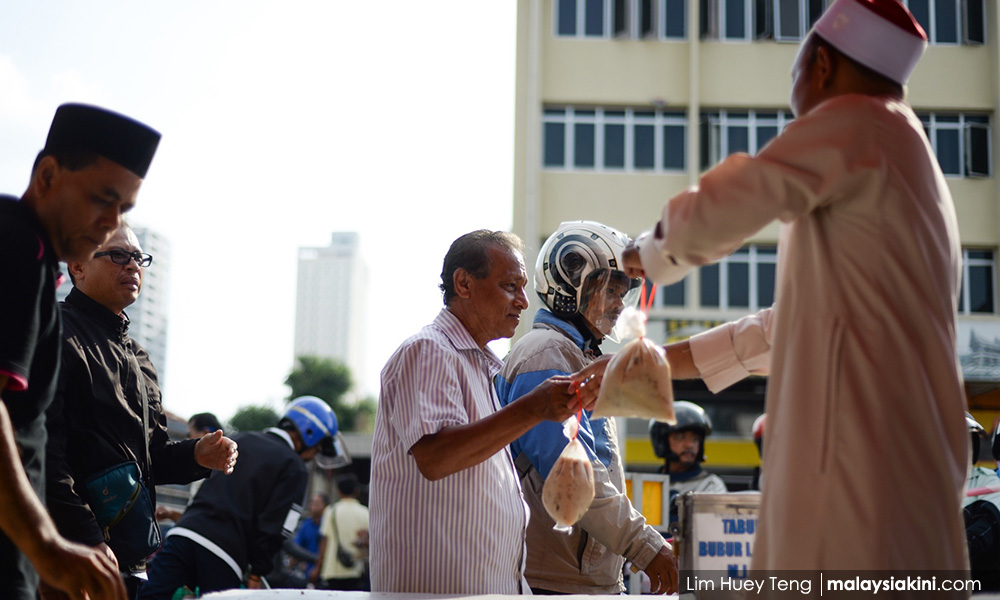
When it was his turn to collect the bubur lambuk, smiling ear to ear, Pak Samad said, “One packet please!”
The man handling the distribution suddenly apologised and turned down Pak Samad’s request.
“Sorry, we do not serve bubur lambuk to ordinary folk. It is only for the committee members of the mosque,” the man explained.
“How about the less fortunate?” Pak Samad asked.
The man shook his head.
Pak Samad was disappointed. Instead of welcoming all members of the community to take part in this beloved tradition, how could the mosque restrict access to bubur lambuk and reserve it exclusively for specific groups, he thought to himself.
He wished he could have argued with the mosque leaders to reevaluate their approach which had created an atmosphere of exclusivity and elitism that is against the Islamic principles of equality, inclusivity, and generosity towards all members of society.
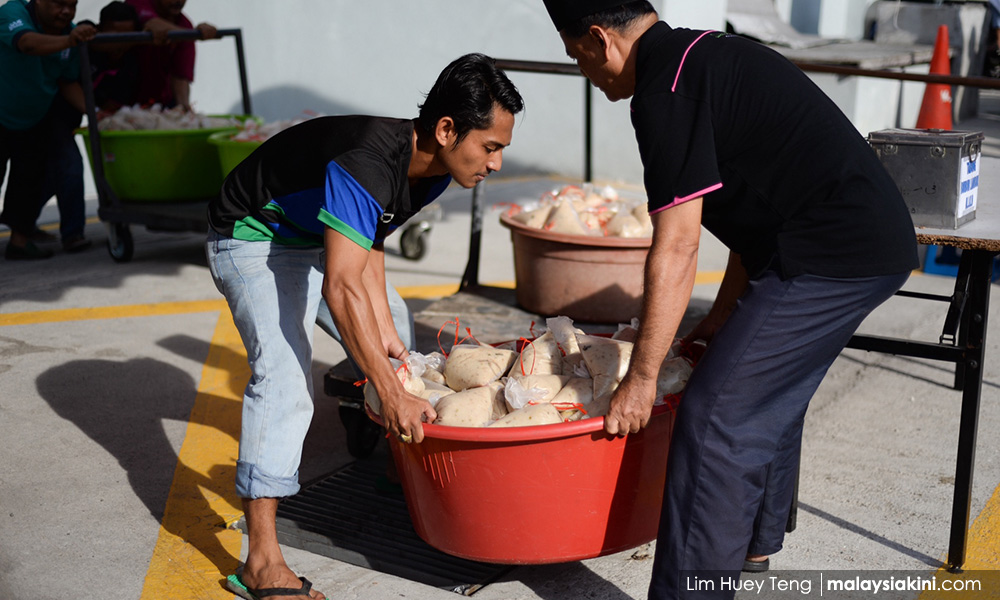
Unfortunately, Pak Samad was fasting and wasn’t in the state of mind for such an argument.
So, he turned around and went home empty-handed.
Symbol of community unity
In the following days, Pak Samad read about the insensitive comments coming from Muslims who were against the education minister’s directive about keeping school canteens open for non-Muslim students during Ramadan. He wasn’t too happy about it either.
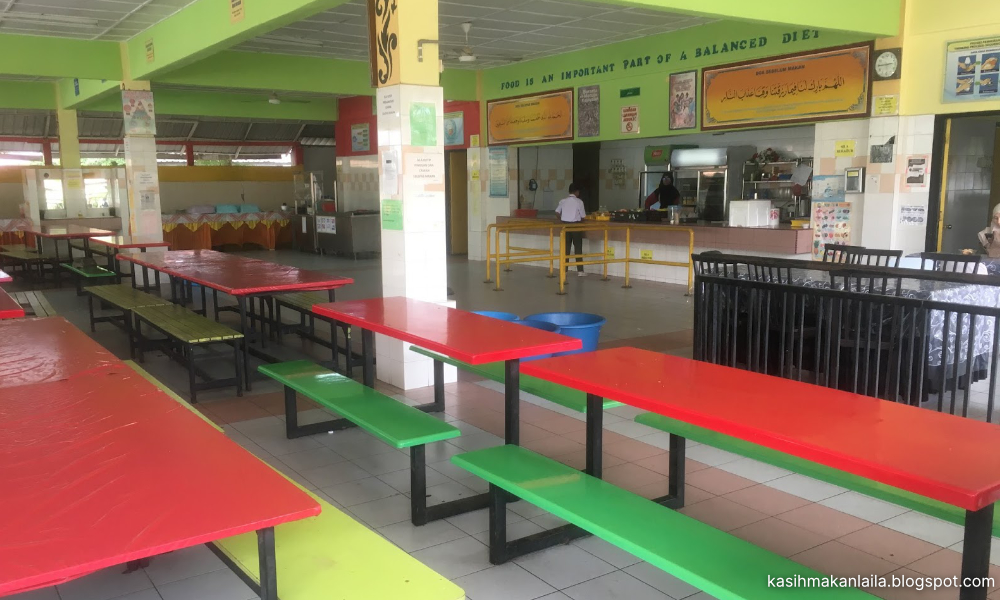
“Ramadan is defined by the spirit of unity and solidarity, regardless of someone’s race, religion, social status, or background.
“So why are we perpetuating social divisions instead of strengthening our bonds of brotherhood and sisterhood towards all members of our society?” he wondered.
Just like the mosque which failed to prioritise the needs of the less fortunate and marginalised members of society who are most in need of assistance during Ramadan, Muslims who opposed keeping the canteens open during the fasting month have also failed to recognise the needs of the children of our non-Muslim brothers and sisters.
Pak Samad was quite disturbed by the changes he had seen within the Muslim community. In the old days, there were no hierarchies within Muslims and no alienating practices towards the non-Muslims.
Although he was very much concerned, he remained an optimistic man. He holds on dearly to his father’s advice – “Always believe there are more good people than bad. As long as you are good, the world is good.”
Faith restored
On the third day of Ramadan, Pak Samad began his quest for bubur lambuk once again. He believed there are still mosques that took pride in preserving the cherished tradition for future generations.
With his mind full of positivity and his heart full of hope, it did not take Pak Samad long to find several other mosques that fostered a sense of community pride in their bubur lambuk distribution.
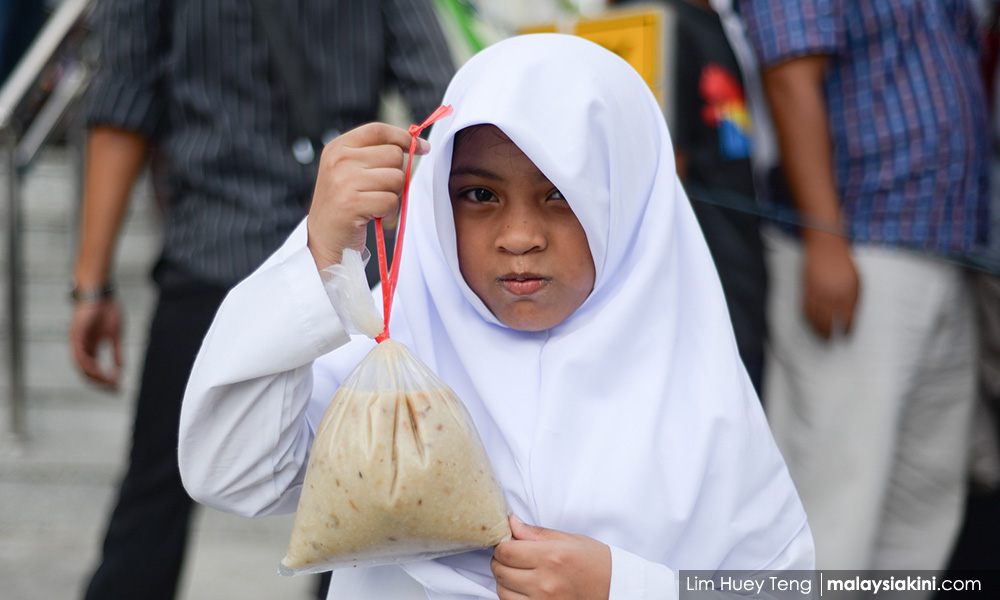
Instead of making rice donations a pre-requisite or making the bubur lambuk available for a fixed price, these few mosques which Pak Samad found gave out rice porridge to anyone who requested it, absolutely free.
A donation box is provided for those who wish to help the mosque cover the cost of the daily bubur lambuk for the community, though the donation was not compulsory. This was exactly how bubur lambuk distribution was practised in the past.
Pak Samad was happy. He took out a few hundred ringgit and dropped it into the box. His faith in people had been restored. His faith in Muslims was restored too.
Pak Samad is not a fictional character. This story isn’t a work of fiction either.
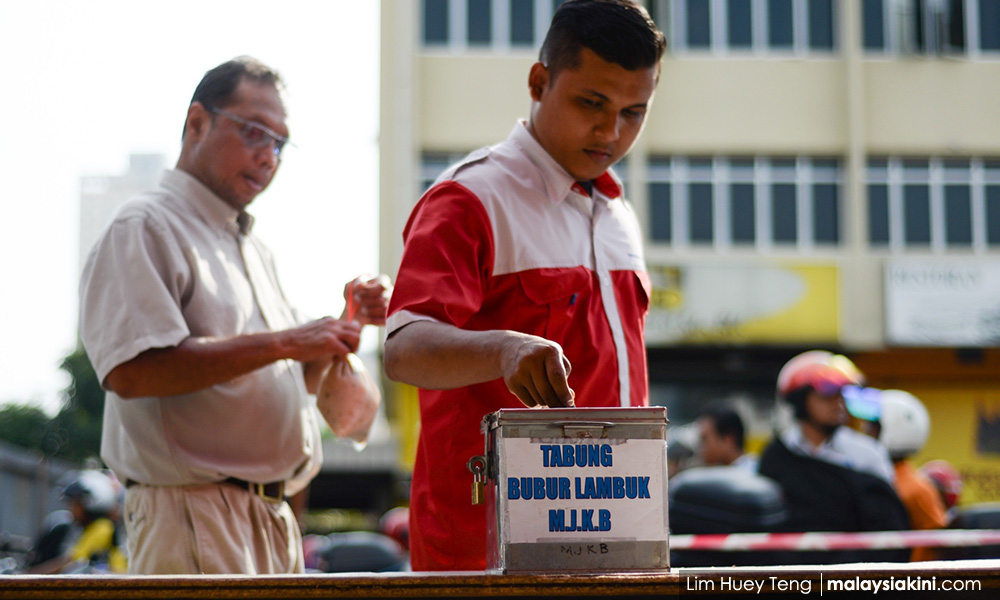
Malaysia needs more people like Pak Samad. We need people who believe in kindness, generosity, compassion, and solidarity.
We need people who believe in being good, doing good, spreading good, and hoping for everything good.
FA ABDUL is a multi-award-winning playwright and director in the local performing arts scene, a published author, television scriptwriter, media trainer, and mother. Her ultimate mission in life is to live out of a small suitcase.

No comments:
Post a Comment